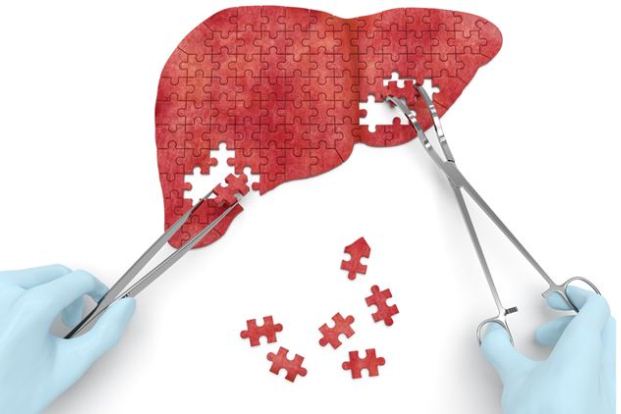How can I keep my Liver Healthy?
in Gastroenterology and GI Surgery
Apr 19, 2022
Usually, we worry about our heart, bones, hair or weight, however, not many of us focus on our liver, which plays a pivotal role in our metabolism and also helps in the production of various hormones that regulate our body systems. Maintaining a healthy liver takes few lifestyle choices and ensuring that you maintain a healthy and clean life. In case of an issue with your liver, you must visit a gastroenterologist.

Ways to Keep Your Liver Healthy:
- Maintain a healthy weight: One should maintain a healthy weight and if the person is obese, then there are high chances that the person might be suffering from non – alcoholic fatty liver disease. This type of ailment is one of the fastest growing and is a result of un healthy lifestyle. Reducing your weight is the best way to reduce your fatty liver and be healthy.
- Balanced diet intake: Avoid high-calorie meals, saturated fat, carbohydrates (such as white bread, white rice, and regular pasta) and sugars. For a balanced diet, intake of fiber should be more, which can be taken in form of fresh fruits, vegetables, whole grain bread, rice, and cereals. Drink a lot of water throughout the day.
- Exercise regularly: Exercising consistently will help in burning triglycerides for fuel and can also reduce liver fat.
- Avoid toxins: Toxins injure liver cells. One should not come in direct contact with toxins from cleaning and aerosol products, insecticides, chemicals, and additives. When there is the use of aerosols, make sure that the room is ventilated, and wear a mask.
- Use alcohol responsibly: Consumption of alcohol may lead to many health problems. They can damage or destroy liver cells and scar your liver. It is advisable to drink alcohol only in moderation or to quit completely.
- Avoid contaminated needles: Unsafe injection practices, though rare, may happen in the hospital setting, and would need immediate follow-up. Also, clean needles for tattoos and body piercings should be used.
- Medical care, if exposed to blood. If for any reason you come into contact with someone else’s blood, immediately seek an advice with an expert.
- Practice safe sex.Having unprotected sex or with multiple partners may increase the risk of hepatitis B and hepatitis C.
- Wash your hands.Use soap and warm water immediately after using the bathroom.
- Follow directions on all medications: Never mix alcohol with other drugs and medications even if they’re not taken at the same time. Discuss with the physician about any over-the-counter medicines, supplements, and natural or herbal remedies, if taken.
- Get vaccinated.There are vaccines for hepatitis A and hepatitis B.






.png)
.jpg)
